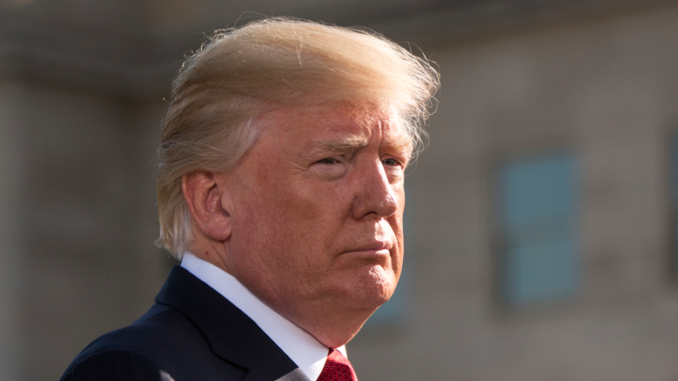
American Presidents–Democratic and Republican–once championed free markets. Respecting the boundaries between the state and free enterprise and understanding the power of markets to foster prosperity and higher living standards, they largely took a “hands off” approach when it came to private companies. No more.
Just over half-way through his first term in office, President Trump has waged a remarkable and unrelenting campaign to reduce the role of markets in the U.S. economy. He has bullied companies. He has handed out subsidies. He has imposed tariffs.
In his latest anti-market effort, he has renewed his political assault on AT&T. In a tweet, he called for a boycott of AT&T as an extension of his ongoing campaign to curb the nation’s free press. On June 3, he tweeted:
I believe that if people stoped using or subscribing to @ATT, they would be forced to make big changes at @CNN, which is dying in the ratings anyway. It is so unfair with such bad, Fake News! Why wouldn’t they act. When the World watches @CNN, it gets a false picture of USA. Sad!
— Donald J. Trump (@realDonaldTrump) June 3, 2019
This is not the first time the President has tried to impose his will on AT&T. Previously, the Trump Administration attempted to block AT&T’s $80 billion acquisition of Time Warner, even as the deal involved vertical integration, rather than horizontal integration, which can raise legitimate antitrust concerns. Instead, the Trump Administration wanted to compel AT&T to sell off Turner Broadcasting, which owns CNN. The November 8, 2017 issue of The New York Times reported:
The ongoing negotiations have also demonstrated how the Trump administration may regulate big-ticket mergers and acquisitions, representing the first major test for the government’s antitrust strategy.
A central component of the dispute, according to people from both companies and the Justice Department, is CNN — the network that Mr. Trump has frequently attacked as a purveyor of “fake news.”
…Justice Department officials called on AT&T to sell Turner Broadcasting — the group of cable channels under the Time Warner banner that includes CNN — as a potential requirement for gaining government approval, according to three people from the companies involved, who spoke on the condition that they not be named because of the delicacy of the negotiations.
The effort to block the acquisition lacked merit. It was entirely political in nature.
In the end, the U.S. Court of Appeals for the District of Columbia Circuit ruled against the Trump Administration explaining that the government had “failed to meet its burden of proof” under its theory that the transaction would have given Turner Broadcasting “increased leverage” that could have damaged consumer welfare.
To bolster his call for a boycott, Trump charged that CNN provides a “false picture” of the United States. Instead, it is actually the President who paints a false portrait of the nation. Worse, he does so almost every time he speaks to the nation. On April 29, 2019, The Washington Post reported:
It took President Trump 601 days to top 5,000 false and misleading claims in The Fact Checker’s database, an average of eight claims a day.
But on April 26, just 226 days later, the president crossed the 10,000 mark — an average of nearly 23 claims a day in this seven-month period, which included the many rallies he held before the midterm elections, the partial government shutdown over his promised border wall and the release of the special counsel’s report on Russian interference in the presidential election.
Both the President’s efforts to curb the domain of markets and his seemingly limitless prevarication may be unprecedented in the United States, but they are not unknown in history. Indeed, his tactics are crude adaptations of Soviet approaches aimed at sustaining ideological “correctness.”
In the USSR, policy failures were routinely blamed on external actors. Notice how often President Trump and his apologists in the Congress and Talk Radio/Cable TV blame everyone but the President for his ineffectiveness and worse. History and information were regularly and sometimes wildly distorted to serve the party line. In the Trump Administration, one has “alternative facts” as Presidential Counselor Kellyanne Conway framed them.
In the long-run, such tactics could not save the Soviet Union from the fatal consequences of its inherently flawed system. So long as American voters remain vigilant, reasonably informed, and are willing to put the nation’s best interests ahead of political personality and Party loyalty in exercising their Constitutional role in the electoral process, the latest evolution of those tactics will meet a similar fate in the United States. How the American people respond could well determine whether the Trump Administration proves to be an inconsequential historical footnote or whether it winds up becoming the symptom of a much greater political disease that undermines the American Republic.
